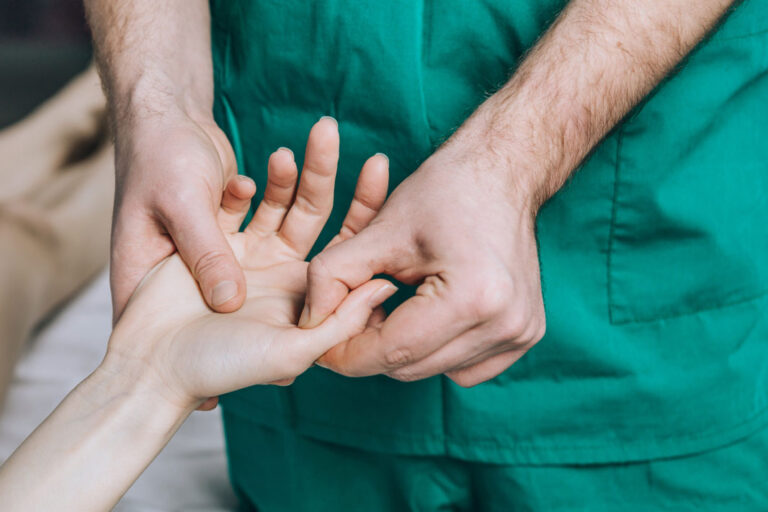If you have severe, burning pain in your hands and feet that never goes away, you may experience causalgia, a complex regional pain syndrome (CRPS), a chronic pain illness affecting millions of individuals worldwide. Its characteristics include extreme sensitivity to touch and uncontrollable nerve damage. Early diagnosis and treatments are available that reduce pain’s severity and impact. Keep reading to know more about causalgia.
WHAT TYPE OF PAIN IS CAUSALGIA?
Causalgia is a chronic pain syndrome and its symptoms are burning and throbbing sensations and extreme sensitivity to touch, temperature, and movement. Damage to the large sensory nerves that transmit signals from the brain and spinal cord to different areas of the body is assumed to be the reason for causalgia.
Visit Specialty Care Clinics if you experience constant, severe pain that makes moving or touching a limb difficult. An early diagnosis and treatment of causalgia are advised.

WHAT DEVELOPS CAUSALGIA?
The cause of causalgia is not known, it frequently occurs after damage to the affected area, such as an amputation or a severe burn. Other reasons include infections, fractures, or surgery in the affected area.
Infectious causes:– Bacteria or viruses infections also cause damage to the nerve, which leads to symptoms similar to causalgia. These infections cause polyneuropathy (affects several parts of the body) causing severe nerve damage and discomfort all over the body.
Lyme disease, HIV/AIDS, Shingles, Varicella Zoster Virus (VZV), Herpes Simplex Virus (HSV), Syphilis, Toxoplasmosis gondii (Toxo), and Epstein Barr Virus (EBV) are the most common diseases agents that cause this kind of nerve injury.
Disease-related causes:– Certain diseases or medical conditions can also cause causalgia. Examples are- lupus or rheumatoid arthritis causes inflammation that results in pain and discomfort in a particular area. Diabetes and multiple sclerosis also cause causalgia-like symptoms.
Trauma-related causes:– An accident or trauma to a particular nerve is one possible cause of causalgia. A physical blow, a laceration, or surgery could result in this kind of injury. Sometimes even minor injuries can cause nerve damage and pain in particular areas of the body.
WHAT ARE THE SYMPTOMS OF CAUSALGIA?
Severe burning pain in the affected area is the most common sign of causalgia. Depending on the severity of the injury, this pain may be continuous or intermittent and can range from mild to intense levels.
Other symptoms are numbness, muscle twitches, tingling sensations, swelling, and tenderness in the affected area. Patients may also experience fatigue and depression due to pain severity. Its symptoms vary and may change with time.

HOW TO DIAGNOSE CAUSALGIA?
One test cannot diagnose causalgia. Following a physical examination and a record of your medical history, your doctor may suggest tests such as :
- An X-ray is to look for fractures and mineral loss in the bones.
- An MRI to examine soft tissues.
- Thermography to compare the blood flow in injured and uninjured limbs and measure skin temperature.
HOW DO DOCTORS TREAT CAUSALGIA?
Its treatment includes medical intervention and physical therapy. Common treatments are :
- Medications- NSAIDs (nonsteroidal anti-inflammatory drugs) or opioids to reduce pain and inflammation.
- Antidepressants can control how the body reacts to pain signals.
- Physical therapy to restore mobility and strength.
- Psychological counseling to assist patients in coping with the emotional effects of living with chronic pain.
- Nerve blocks can lessen pain by preventing the transmission of pain signals.
- The removal of scar tissue or surgery to restore damaged nerves that may be causing pain and discomfort.
Your physical therapist may also consider transcutaneous electrical nerve stimulation (TENS), which blocks pain signals by sending electrical impulses through body fibers.
Some people have discovered that heat therapy, which involves using a heating pad periodically over the day, can be beneficial.
